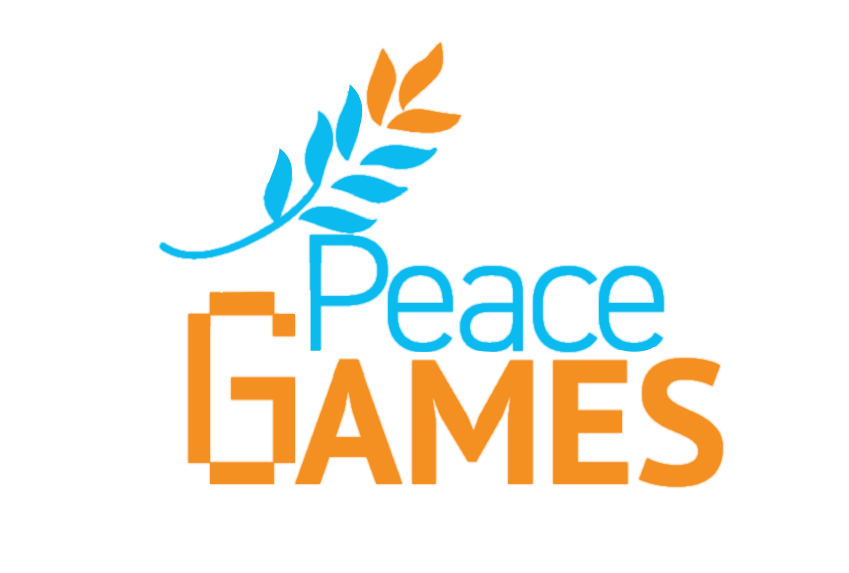
THE PARTNERSHIP
The project “Peace Games” was developed and realised within the Laboratory for Education Inspiring Peace (EIP Lab) created in Sanremo by the UPPER Project (ERASMUS+). The project was coordinated by the Fondation des Régions Européennes pour la Recherche, l’Éducation et la Formation (FREREF) in partnership with the International Institute of Humanitarian Law (IIHL), the Liceo Statale G.D. Cassini (Sanremo), the Ministry of Education and Employment of Malta (MEDE), the Asociación cultural Da2 Trucados, the University of Modena and Reggio Emilia (UNIMORE), the FH Joanneum University of Applied Sciences, the Evangelische Schule Neuruppin and the Université Côte d’Azur (UCA).
After over twenty years of justified -but almost exclusive- insistence in making education outcomes closer to labour market needs, the current context of growing distrust in political authorities and social disharmony in Europe have brought back the attention of policy makers to the need of cultivating social, citizenship and democratic culture learning outcomes in school education and adult learning. In parallel, the Covid outbreak evidenced the need to adapt and renew way of teaching and learning, by embracing the development of new communication and information technologies.
Following the previous initiatives taken at European level after the Paris declaration (2015) still accurate, and the establishment of New Priorities for European cooperation in education and training (ET 2020), promoting equity, social cohesion and active citizenship through Education, the Peace Games project aims to tackle these issues by supporting and promoting the acquisition of civic and social competences through a creative way of learning: playing games!
Creativity is then not only a path to acquire competences, but also a competence to acquire in itself, included in what we consider being “core Peace Education competences”. “Creativity” is the nineth competence of the Peace Education for Educators Framework issued from the previous inspiring project Upper). Creativity of learners and teachers/educators is fostered when playing and developing games within a collaborative, peaceful and inclusive environment. This constitutes an important step in re-balancing the different aims of education, after a period in which skills for the labour market had become the dominant priority in public education policy; however, citizenship education, dialogue, teamwork, respectful interpersonal and intercultural communication, taking responsibility and caring about others, creative and sustainable thinking are competences more and more required, both by employers, and as a basis of an active democratic citizenship.
Several recent studies and policy frameworks, among which the OECD Education 2030 focus on Transformation skills, the NESTA Study on Transferable Skills in the workplace (2019), the Rectec review of Transversal competences (2019) confirm the evidence that is more and more frequently collected by listening to employers of the public and private sectors. However, the same studies and context-based observation also confirm that the school system and teachers in particular are not always prepared or well-equipped to develop these competences and need easily available system resources and practical instruments to be more effective. In particular, the potential of games (board games and interactive digital games) to generate interest by children and older students for citizenship, conflict transformation, negotiation, peace and respectful communication is recognised by many stakeholders and specialised educators.
THE PROJECT
The Peace Games consortium aimed to contribute to the development of citizenship, democratic and social competences by using the full potential of creativity through game-based learning in formal and informal learning. Creativity stands at the core of this project as it is considered both as a way to acquire civic and social key competences, and as a competence to acquire and develop in itself via the use and the development of “self-made” games oriented toward Peace Education.
Co-founded by the Erasmus+ Programme, Peace Games aimed at diffusing these competences in learners and at helping teachers to make good educational use of games. This was organised through the identification, assessment and support to the use of relevant games (online or in face-to-face) oriented to civic competences, intercultural communication and conflict transformation already existing and provide guidelines and advices for the development of new “self-made” games relevant for particular contexts.
PEACE GAMES OBJECTIVES
1) To explore, analyse and classify the available supply of peace-oriented games on the basis of their relevance to the most pertinent competence frameworks that are actually developed and tested internationally;
2) To identify, through a substantial mapping exercise based on the competence frameworks, existing gaps and engage the game developers community in the creation of new games addressing the identified gaps, also using existing sets of peace exercises that have not yet taken a game configuration;
3) To develop an online hub able to provide information, advice and support to education institutions and educators who are interested to use the potential of games to achieve learning outcomes in these competence areas and engage “indie game development communities” in the creation of new games;
4) To test and validate the use of the online hub and available games in ten pilot schools in five countries and, on a voluntary base, in other local communities and civil society organisations engaged in citizenship education;
5) To develop and validate a Guide on “How to use, adopt and adapt game-based learning in traditional education settings”;
6) To provide guidance and a collaborative context to individual learners who are already engaged in online and offline games and might discover the interest and life-relevance of peace-oriented games;
7) To draw lessons from the review and the online hub activities in order to feed the present education policy debate on citizenship and peace education.
Interested in participating in the project Peace Games? Click here to access the Peace Games Catalogue or participate in the pilot phase of the project!
